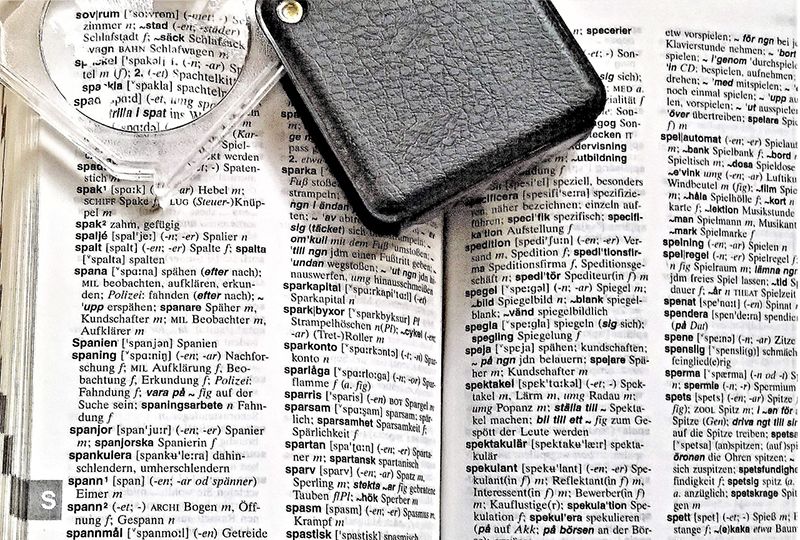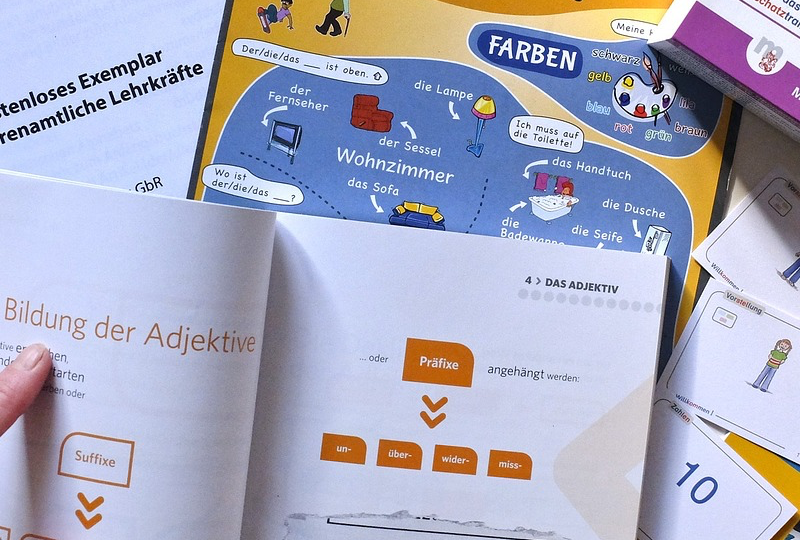Exploring German Homophones and Learning the Difference

Learning a new language is hard enough without the one type of speech that can confuse even native speakers - the homophone. The confusion that comes when you have two words that are spelled differently and have different meanings, but they have the same pronunciation.
Even if you are a native speaker in a language, when you hear the word with no context and it isn't spelled in front of you, you aren't going to know which meaning the word has. It's a case of needing the context to know what the person means.
For example, in English, you know what a night is, as well as a knight. Two very different things, but they are spelled differently, and they are pronounced exactly the same way.
Then you get to the words two/to/too and they're/their/there, and you start to see how people can be confused even when they are native speakers.
German has plenty of homophones too. However, as a non-native student of the language, it is probably going to be a lot harder for you to be able to get the meaning from context clues. At least when you first start learning the language. If you aren't aware of them early, you'll have to do some relearning later.
Let's take a look at some of the most common and interesting examples of these confusing words. That way you can be aware of the meanings so you can better use the context clues.

The Spellings Likely to Trip You Up
You are probably familiar with the different ways to alter spelling to get the same sound. Here are a few examples in English.
- F and PH
- C, S, and SS
- E, EE, and Y
Since English has strong roots in German, it makes sense that German has some of the same sound combinations. However, they have a few that may surprise you.
Using S or SS
Just like in English, the way these letters are pronounced is exactly the same. Whether you have one or two, it makes the same sound. This can also make it challenging to spell in German as it isn't obvious to an English speaker which one to use.
This is one of the few tricky aspects of learning to spell in German - mostly because things are spelled exactly as they sound.
Words Ending with D, T, DT, and TT
This one is probably familiar because there are times when a hard D is difficult to differentiate from T. We don't really have DT very often, but English definitely has TT as well.
These ending are even more common in German, so you will need to be careful when a word ends in something that sounds like a T as it can actually be spelled one of four ways.
Is It I or IE?
This is another familiar issue that we have in English. And just like with English, you are going to spend a lot more time memorizing the correct spelling.
Spellings with S, Z, and SZ
This is the first of two letters that really doesn't have an English equivalent. When you have S and Z, they really aren't pronounced the same way (unless you come from an area with a heavy accent).
In German, these word combinations tend to create the same sound. Since it is a bit different from any of the English pronunciations, it can be particularly difficult. As you learn the words with these sounds, you'll probably learn the difference with flashcards.
Is It Ä or E?
Hundreds of years ago, English did have an equivalent version of this, but there is nothing even remotely similar today.
This is probably the hardest because we don't have umlauts, so we are more likely to forget about them. When you are talking about ä and a, they have very different sounds, but when you are learning German, that is far from the first thing on your mind.
For example, hält means holds, and (der) Held means hero. To an English speaker, the words don't look like they sound at all similar. However, in German, they are pronounced the same.
This is probably going to be the trickiest one to learn, at least until you have used ä enough in your writing.
Something to Keep in Mind
While these examples provide a good guide to what to expect, keep in mind that different dialects will change the way words are pronounced.

The Words to Watch - Er, Listen For
Here’s a quick rundown of some of the most common homophones you will probably encounter (some of them you have probably already noticed).
| German Word | English Translation | German Word | English Translation |
| aß (essen) | ate | das Aas | Carrion |
| bis | until | Der Biss | the bite |
| bot … an (anbieten) | offered | das Boot | boat |
| das | the | dass | that |
| das Heer | army | her | from |
| das Lid | eyelid | das Lied | Song |
| das Rad | wheel | der Rat | Council |
| der Bund | association | bunt | colorful |
| der Leib | body | der Laib | loaf |
| die Gäste | guests | die Geste | gesture |
| die Lehre | apprenticeship | die Leere | void |
| die Seen | lakes | sehen | to see |
| die Stadt | city | statt | instead |
| die Wende | turn | die Wände | walls |
| die Zähne | teeth | die Szene | scene |
| die Ziele | goals | die Seele | Soul |
| fällt (fallen) | falls | das Feld | the field |
| frisst (fressen) | eat (verb for when an animal eats, or as an insult to someone with bad manners) | die Frist | deadline |
| hält | holds | der Held | hero |
| hast (haben) | have | hasst (hassen) | hate |
| ist (sein) | is | isst (essen) | eats |
| kannte (können) | could | die Kante | edge |
| sauber | clean | der Zauber | magic |
| seid (sein) | are | seit | since |
| Sie/sie | formal you/she/they | sieh (sehen) | See |
| wider | against | wieder | Again |
There are a lot more words you may hear that are homophones, but depending on your level of German, you may not encounter them often. Wikipedia is actually a pretty good resource if you want to dive into a world that could be a bit more confusing. It's probably best to wait until you have a pretty good understanding of the language though as trying to learn them all at once will quickly get overwhelming.

Keep Practicing
Homophones can be tricky. If you want something that's a little more fun, you can work on tongue twisters - they are much more likely to have homophones to help you start to work on memorizing spelling and words that are a little more fun.
Have some fun with your learning. It will make the process both more entertaining and more memorable.
